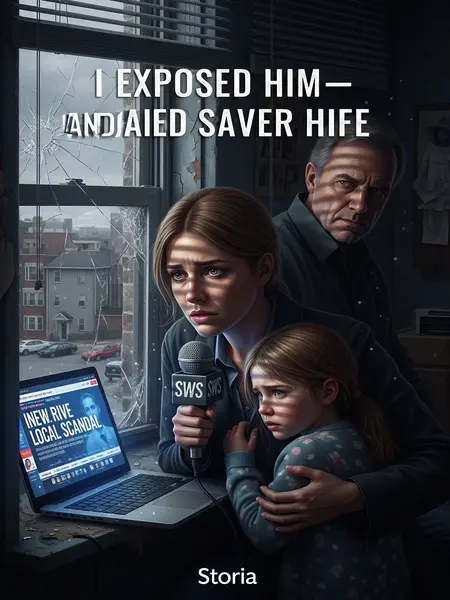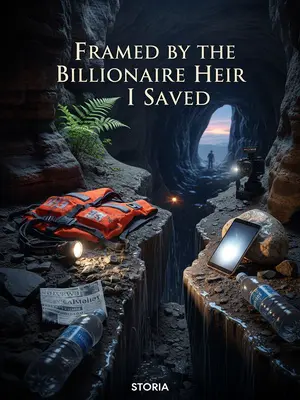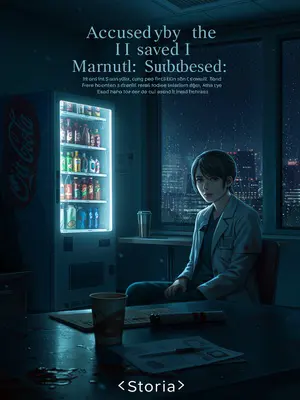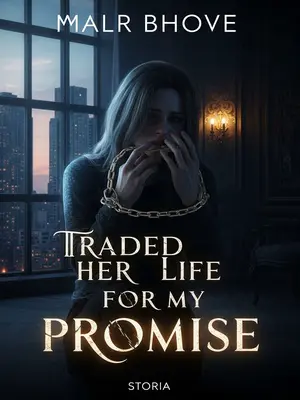Chapter 1: The Viral Father’s Secret
The first time I ever set foot in a newsroom, I had no idea my first big story would tie me to a father and his daughter—two strangers who would change everything I thought I knew about people, and about myself.
It was one of those stories that felt like everyone had already heard about it—a tale that had made its rounds on social media, passed from neighbor to neighbor, but somehow, it still clung to me. The daughter was battling a brutal autoimmune disease, and her father—gray at the temples, worn thin by worry—went live every night, selling odds and ends on the internet. The story exploded: people online didn’t just send sympathy, they sent money. Not just a handful, but tens of thousands of dollars, flooding in with every tearful broadcast.
I remember scrolling through the comments late at night, my eyes gritty from too little sleep, watching strangers from all over Ohio—hell, from across the country—sending in Venmo transfers, posting on GoFundMe, and writing things like, “Praying for you both,” and, “Here’s $20, hope it helps.” It was the kind of collective hope that only happens when people feel powerless but desperate to make a difference. It never felt like enough.
But it wasn’t until I visited their home for a follow-up interview that I uncovered a secret—one that left me reeling, made me question everything I thought I knew about human nature.
In the summer of 2021, I graduated from Ohio State, where I studied journalism. Fresh out of school, I landed a spot at the Toledo Tribune, a paper with just enough reputation to make my parents proud and my student loans feel almost worth it.
I can still feel the muggy July heat, the air thick with the scent of cut grass and fried funnel cakes drifting over from the block party across the street from my first apartment. Starting at the Tribune felt like stepping into a world I recognized, but with the volume turned all the way up—local, but suddenly the stakes felt enormous. I remember thinking, This is it. This is real.
I was an intern, covering social news—the kind of stories that blow up on Facebook. My job was to chase whatever was trending, whatever got people talking.
Most days, I wrote about lost dogs, bake sales, and the occasional city council shouting match. But every now and then, something would break through the noise—a story with a hook, something that made even the most jaded editor perk up. You could almost hear the newsroom hush.
Right after I started, my editor—gruff, sharp-eyed—handed me an assignment: go interview the dad from the viral story about the dad selling things online for his paralyzed daughter’s treatment.
Honestly, the story itself wasn’t exactly fresh—just another tale of family hardship tugging at heartstrings. We’d seen it before.
But what really made people pay attention wasn’t just the illness or the poverty. It was that people online had donated almost a hundred grand to this father and daughter, and the dad went live, dropping to his knees and thanking people on camera.
A grown man—someone’s dad—kneeling in front of a webcam. Tears streaming down his face. It haunted people. There was something about it that was too raw, too real, maybe even uncomfortable. It stuck with you, the way some viral things do.
He promised every cent would go to his daughter’s care, and swore to keep everyone updated, showing receipts and all.
But after nearly a year of fundraising, no one ever saw a breakdown of where the money went. Suddenly, everyone online was asking: Where did all that money actually go?
In this business, you move fast or you miss the story. So, on my second morning, I grabbed my stuff and rushed out for the interview.
I tossed my notebook, phone, and battered Canon camera into my bag, skipping breakfast. My stomach grumbled, but I didn’t care. The sky was still gray when I stepped out, the city just waking up. Adrenaline buzzed in my veins—maybe, just maybe, this would be the story that proved I belonged here.
Following the address, I found them easily enough. They lived in a run-down apartment complex. The stairs were narrow and grimy, barely wide enough for one person to squeeze by.
The kind of place where the hallway carpet always smelled faintly of mildew and fried onions. The walls had stories—peeling paint, water stains. I could hear a dog barking behind one door, a TV blaring behind another. Everything felt tight, claustrophobic, like the building itself was closing in. I thought of the apartment I grew up in—different city, but the same kind of tired, sagging air.
I knocked on the door of 404, just as the address said.
"Hi, I’m Mariah Lane, from the Toledo Tribune. We spoke earlier—do you have a few minutes?"
I waited. Nothing. My nerves kicked in. The silence dragged on. I tried to steady my breathing, willing myself not to look anxious.
I knocked again.
"Hi, it’s Mariah from the Tribune. Are you there?"
Just as I finished, the door creaked open. A musty smell hit me—a mix of old medicine and something metallic, almost like blood.
The man who opened the door smiled, showing teeth yellowed from years of cigarettes.
"Sorry about that—I was just giving my daughter her meds. Come on in."
His voice was rough, worn down by too many sleepless nights. He had that nervous energy. Like he was always waiting for the next bad thing.
I walked into the apartment and couldn’t help but think, Some people just can’t catch a break.
The living room was a mess—piles of pill bottles, half-eaten takeout, and dusty trophies, chipped mugs, old birthday cards. Knickknacks you only keep because you can’t afford to throw anything away. The air felt heavy, like years of struggle were pressing down on everything.
"Please, have a seat. I’ll get you some water."
He gave a small, apologetic smile and ducked his head.













